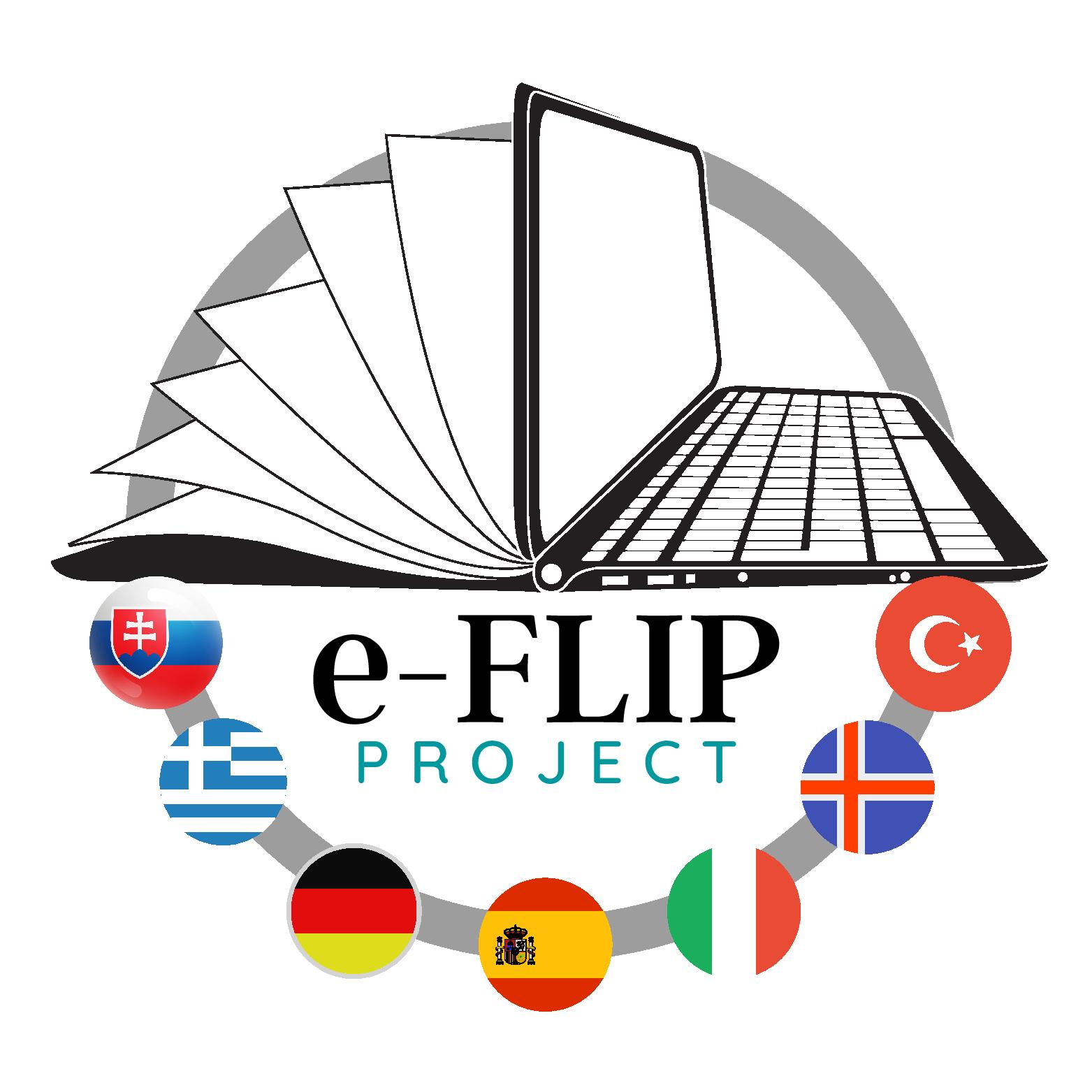Project Partners
You can find the most relevant information about the project partners ranging from Iceland to Turkey, from Spain to Germany, from Italy to Greece to Slovakia.

SLOVAKIA – Súkromná stredná odborná škola Pro scholaris (e-FLIP project coordinator) 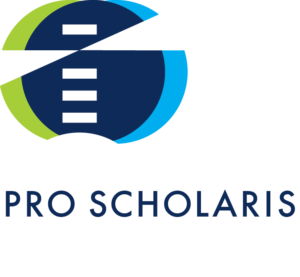
We are Private secondary vocational school Pro scholaris in Žilina, Slovakia and our school offers secondary education in three fields of study: business academy, regional tourism management and information systems and services. Nowadays 215 daily students visit our school from various social levels and backgrounds. Our staff involves 20 teachers. Since April of 2019, the inclusive team started working at our school. One special pedagogue, one school psychologist and three pedagogical assistants help not only disadvantaged students but also the intact ones. One of our most important aims is to lead our students to become a high-quality and attractive competitors at the EU labour market as well as to prepare them for their possible studies at a university.
Website: www.soaza.sk or www.proscholaris.sk
ITALY – I.I.S. Grandis 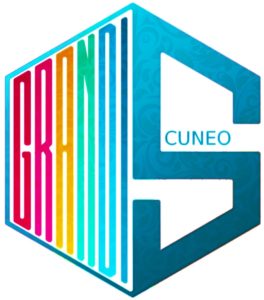
The High School Grandis includes a Technical School for Tourism and two state vocational schools: the Vocational Institute for Social and Sanitary Services (courses: commercial, social-sanitary and opticians) and the Vocational Institute for Industry and Craftmanship (courses: electronics, mechanics and electrics). Pupils are aged 14-18 and they come from Cuneo (56.000 inhabitants) and the surrounding area; many of them belong to families disadvantaged from a socialeconomic and cultural point of view. Training courses of Grandis focus on developing in students an active awareness of citizenship, within a European vision of competences and responsibilities. Experimenting projects in a European and International context, based on “learning by doing “ and “real world tasks” methodology, as well as resilience development, is a fundamental part of this process. The total number of staff is 195 (teachers, attendances and secretaries) and the total number of learners is 1180. About 20% of the students follow a personalised learning project as they are considered pupils with special needs (physically and mentally disabled, dislexics and/or with behavioral problems); actually we have 81 disable students. All those students are integrated in every kind of activity: either didactical or outside school. Grandis School has the goal of offering an integrated education able to enhance and develop every kind of skill (both theoretical and practical). Grandis School is constantly interested in experimenting pedagogical approaches able to stimulate and improve teachers teaching and students learning; consequently to the COVID-19 pandemic situation and new teaching and learning necessities, actually Grandis School strongly needs to promote the digital pedagogical readiness in school education in a systematic way (always aiming to set an inclusive learning environment).
Website: grandiscuneo.edu.it
SPAIN – Institut Guillem Catà 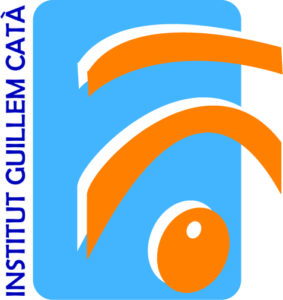
We are a public secondary school in Manresa, near Barcelona. We are in a neighbourhood with a high degree of cultural diversity and many of our students come from disadvantaged social backgrounds. In fact, our school is considered to have a high diversity rate by the local administration due to the important percentage of immigrant students (around 40% in Compulsory Secondary Education). On offer, there is compulsory secondary education (12-16 years old) as well as post compulsory education (16+), and we also have vocational training courses in Health Services, Personal Image, Carpentry, Trade and Commerce and Community Services. We have over 1,000 students and more than 100 staff members. In the past few years, our school has been moving towards a Project Based Learning approach to enhance our students’ competence and placing attention on communication and digital skills. Our most important objective, amongothers, is to prepare our students for a highly demanding society within the framework of European values of democracy, solidarity and equality. Regarding the quality system in the school, we’ve had an ISO9001 certification since 2012. The school’s SWOT analysis shows, among our weaknesses, the students’ poor performance in collaboration and cooperation skills, communication, critical thinking and digital skills. Also, we have an important number of students with lack of motivation issues who are dropping out of school at an early age. These are the reasons why our School’s Policy has placed a special emphasis on tackling these problems by designing a plan of 4-year objectives with contents and activities aimed to: – offer an integral education and training in terms of quality, participation, innovation and continuous improvement. – promote methodological changes in a student-centred approach – strengthen our students’ skills by using active teaching methodologies and promoting the use of ICT – reduce our dropout rates (early school leaving) Besides, with the implications on teaching of the COVID-19 pandemic, we have upgraded our School Policy with the addition of a new specific objective: – Strengthen our staff digital readiness and to enhance online teaching. This project would give us the chance to continue implementing these strategies as well as creating new ones to consolidate our objectives. We have an experienced team in Erasmus+ projects that consists of 8 people, and 4 of them are experienced Erasmus+ coordinators. So far, we have already been involved in 8 successful projects and 3 more projects have been approved in the last Call. Besides, the School Management fully supports the Erasmus team and some of its members are actively involved in the ongoing projects, both in design and implementation. We also have a group of very creative and talented IT and Maths teachers who are willing to join the project team.
Website: guillemcata.cat
TURKEY – Gaziantep University 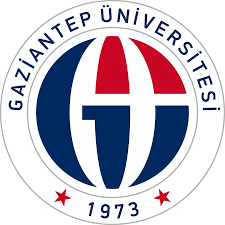
Gaziantep University was founded as a state university in 1987, but higher education on campus began in 1973 when the institute was an extension campus of the Middle East Technical University. The main campus is located in Gaziantep with its extension campuses situated in the neighboring districts such as Nizip, Oğuzeli, Araban and Islahiye. Gaziantep University has always tried to train its students as enlightened, research-minded, scientifically oriented graduates of good character. The main objectives of the University are:
– Cultural, scientific, technical, medical and vocational education and training,
– Fundamental and applied research,
– Development of perspectives with respect to social issues, responsibilities and ethics,
– Technical, scientific and cultural exchanges with similar institutions at national and international levels,
– Professional adaptation to our rapidly changing society and the world in general, with particular attention to European Higher Education Area,
– Contribution to the development of Turkey.
Gaziantep University is the largest university of the region with about 45000 students, 1800 academic staff, 3200 administrative staff, 20 faculties, 5 graduate schools, 11 vocational schools. In Gaziantep University, as well as the research performed in academic departments, additional research and practices in social and cultural fields are carried out by the 28 research and development centers. As an international university, it has about 3000 foreign students from 93 different countries. Gaziantep University is an individual full member of European University Association. Also the University has “Diploma Supplement Label”. The number of students who go abroad, about 29 different countries, with Erasmus exchange programs and study grants is about 1200 while the number of academic staff mobility is 234. Gaziantep University is strongly committed to international collaboration and cooperation. University administration promotes and fully supports Lifelong Learning (Erasmus, Leonardo Da Vinci, Grundtvig, Comenius) and Youth in Action programs supported by European Commission. The university has also strong relations and cooperation with universities in the USA, Canada and Russia. The current internationalization policy of Gaziantep University focuses on the effort to increase the student and staff mobility; increasing internationalization of curricula; active participation in collective research and educational projects. In this manner, curriculum development studies were carried out in the frame of the “Bologna Process” at Gaziantep University. According to existing strategic plan, improving the international collaboration and also dissemination of e-learning programs should be in the targets of the aim which is based on improving the quality of education and teaching activities. University of Gaziantep also has been offering distance learning courses and studies.
Website: gantep.edu.tr
ICELAND – Center for Language and Literacy 
Miðja máls og læsis
The Centre of Language and Literacy is a team of consultants specialised in professional development focusing on all aspects of language and literacy. The Centre was established in 2016, by the Department of Education and Youth in Reykjavik Municipality, to provide support for schools in language and literacy teaching. The team currently consists of 12 specialists whose primary focus is to support teachers and staff working in pre- and primary Schools, leisure and youth centres in Reykjavik. Four of the specialists work as language and cultural mediators who build bridges between the school system, children and families.
Website: mml.reykjavik.is
GREECE – INNOVED 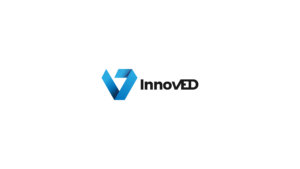
INNOVED is a Greek educational and consulting organization merely focusing on knowledge and innovation transfer in the broader fields of education, lifelong learning and training, entrepreneurship and employment aspects; non formal learning and training methods with the usage of modern technologies. In the novel COVID-19 era the organizational center of attention is on innovative approaches that impact individual’s daily lives and more precisely literacy and digitalization for all.
The main mission of INNOVED is the promotion of knowledge, educational practices and opportunities to the cultural and economic development of the local community and wider society. In order to accomplish its mission, INNOVED is operating in order to achieve to encourage, support and promote the innovative spirit in various areas such as: – Digitalization and e-learning – Education and Training – Social inclusion and intercultural dialogue – Innovative methodologies and practices around the entrepreneurial mindset – Disabilities and empowerment – Non formal practices in education and training provision. InnovED emphasizes on the synthesis and development of educational and training pathways through digital contemporary tools with the provision of innovative and integrated educational solutions tailored to meet the explicit needs of the various groups. More particularly the organization focuses on the activating participation of interested parties with different backgrounds on initiatives that entitle people to a better future (whether professionally or at a personal level) through self-empowerment. InnovED aims at being known for its devotion and professional commitment to excellence. The organizational focal point is to strengthen its cooperation, increase human resources, upgrade and utilize existing human resources, attract parties that who are in need of support and guidance as well as structure and increase participation in initiatives to the end users’ best interest. Through its intensive activation of its staff members, INNOVED represents a broad and extensive network of various organizations and stakeholders that are covering all the areas of the modern social and business life considering as cooperating organizations: – Universities – Training organizations, VET Centers, – Municipalities, Regional Authorities, – Schools, – Chambers, Associations of Enterprises. Our main area of activities covers the design of specialized trainings, the development of new learning methodologies and professionally prepared curriculums supported through a series of well integrated pilot procedures and evaluation (quality) approaches. The members of the research staff have participated in a great variety of research programs in various European funding schemes (H2020, Interreg, Erasmus+, etc.) and regional innovation projects’ initiatives (ERDF, ESF). The organizational objective is the development and the implementation of a broader spectrum of international educational initiatives that will enhance the broader community. More particularly the main goal of INNOVED is the design of internationalization strategies for creating opportunities for partnerships and knowledge alliances ensuring the active engagement participants in various forms of international initiatives (mobility, study courses, intercultural training, other). INNOVED offers a wide range of services. These comprise a range of integrated training, innovative and state of the art educational approaches as well as research opportunities through the implementation of various EU projects. Additionally, this broad spectrum of training and educational services is further supported through the development of well-designed evaluation and assessment mechanisms.
Website: innoved.gr
GERMANY – Europass Berlin 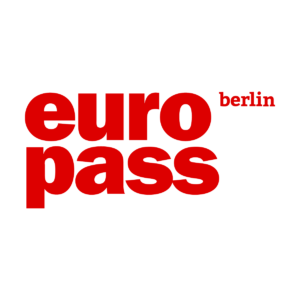
EBB Europass Berlin Beratungsbüro GmbH (EBB) is a cultural and educational organization based in Berlin active in the field of mobility programmes at local, regional, national, European and international level. Europass Berlin GmbH is responsible for vocational education and training for learners, school staff and apprentices and promotes their professional, cultural and personal knowledge. Europass Berlin GmbH offers professional training courses for teachers and school staff on different topics in the fields arts and wellbeing, creativity and soft skills, emotional intelligence, school innovation, ICT, classroom management. One of the most demanded on-site and online courses is the one about the
Flipped Classroom. Europass Berlin GmbH is applicant of and partner for mobility projects in cooperation with several German, European and international educational institutions and companies with the aim to support vocational education through internships and trainings for students, trainees, teachers and professionals locally and abroad. The organization’s work is supported by EU funding programmes, mainly the Erasmus+. Europass Berlin GmbH is concerned with all aspects of mobility, functioning both as project applicant and partner for EU-funded projects; in detail our work consists of the following activities: As applicant, we deal with every aspect of EU projects applications. The projects we apply for include exchange and mobility projects for young people, learners, apprentices, job seekers and teachers (KA1), Strategic Partnerships (KA2) and Support for Policy Reform (KA3). As project partner, we function both as intermediary for international sending institutions who seek to provide their project participants the opportunity to gain work-experience abroad (KA1 and PON), as well as participating organization in Strategic Partnerships (KA2) and Support for Policy Reform (KA3). Moreover, we function in this capacity as a contact and consulting organization for schools as well as other educational institutions who seek to provide their students and/or employees the opportunity to gain work-experience abroad. Partnered EU-Support Programs of ours include Erasmus+, PON and Horizon2020.
Website: europassberlin.com
This website has been prepared and created for the European Commission however it reflects the views only of the authors, and the Commission cannot be held responsible for any use which may be made of the information contained therein.
Funded by the European Union. Views and opinions expressed are however those of the author(s) only and do not necessarily reflect those of the European Union.
Neither the European Union nor the granting authority can be held responsible for them.
